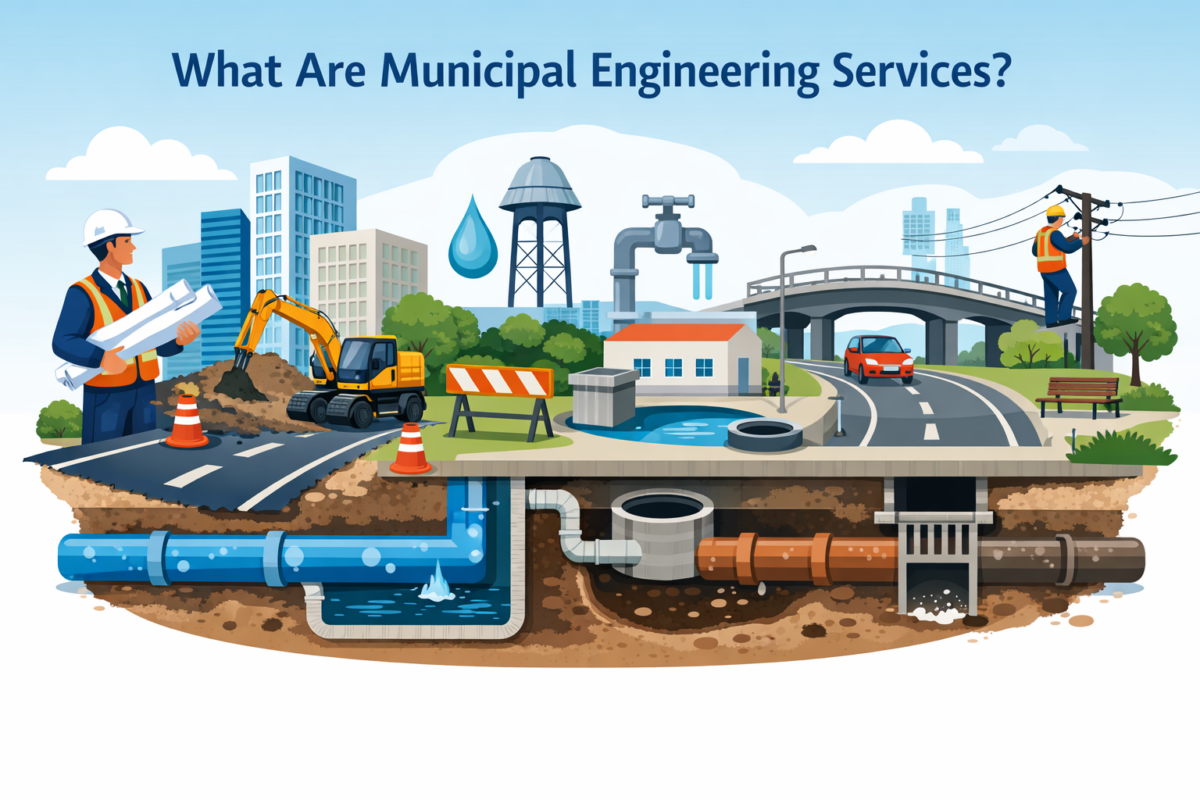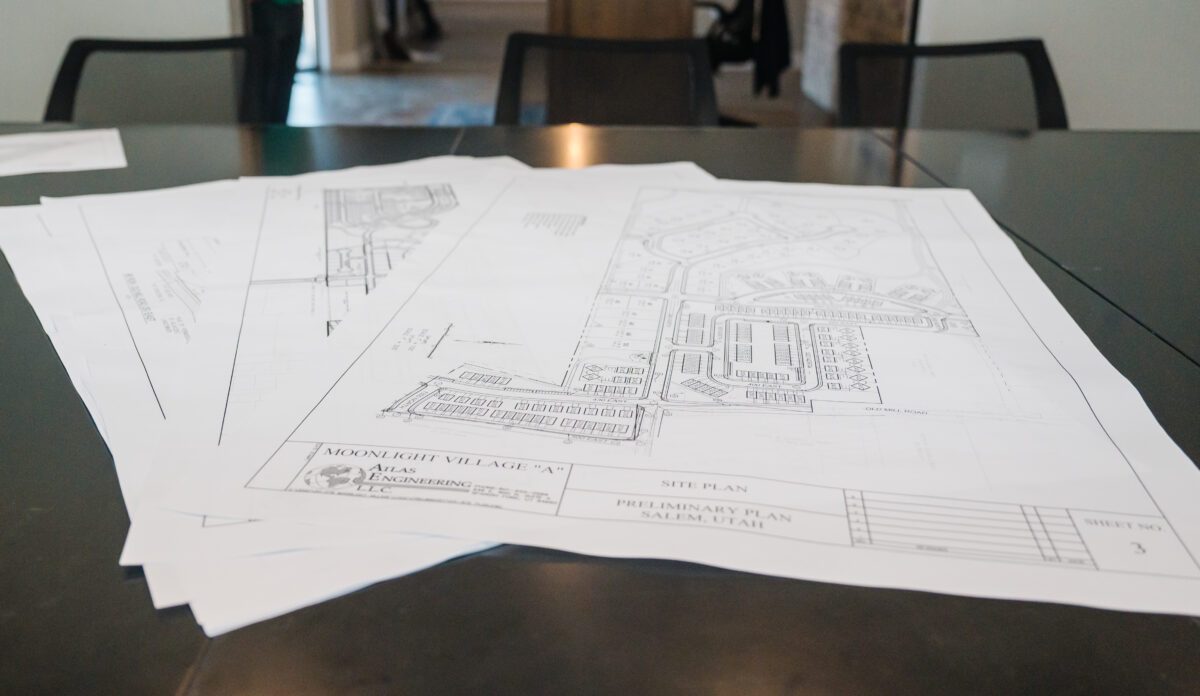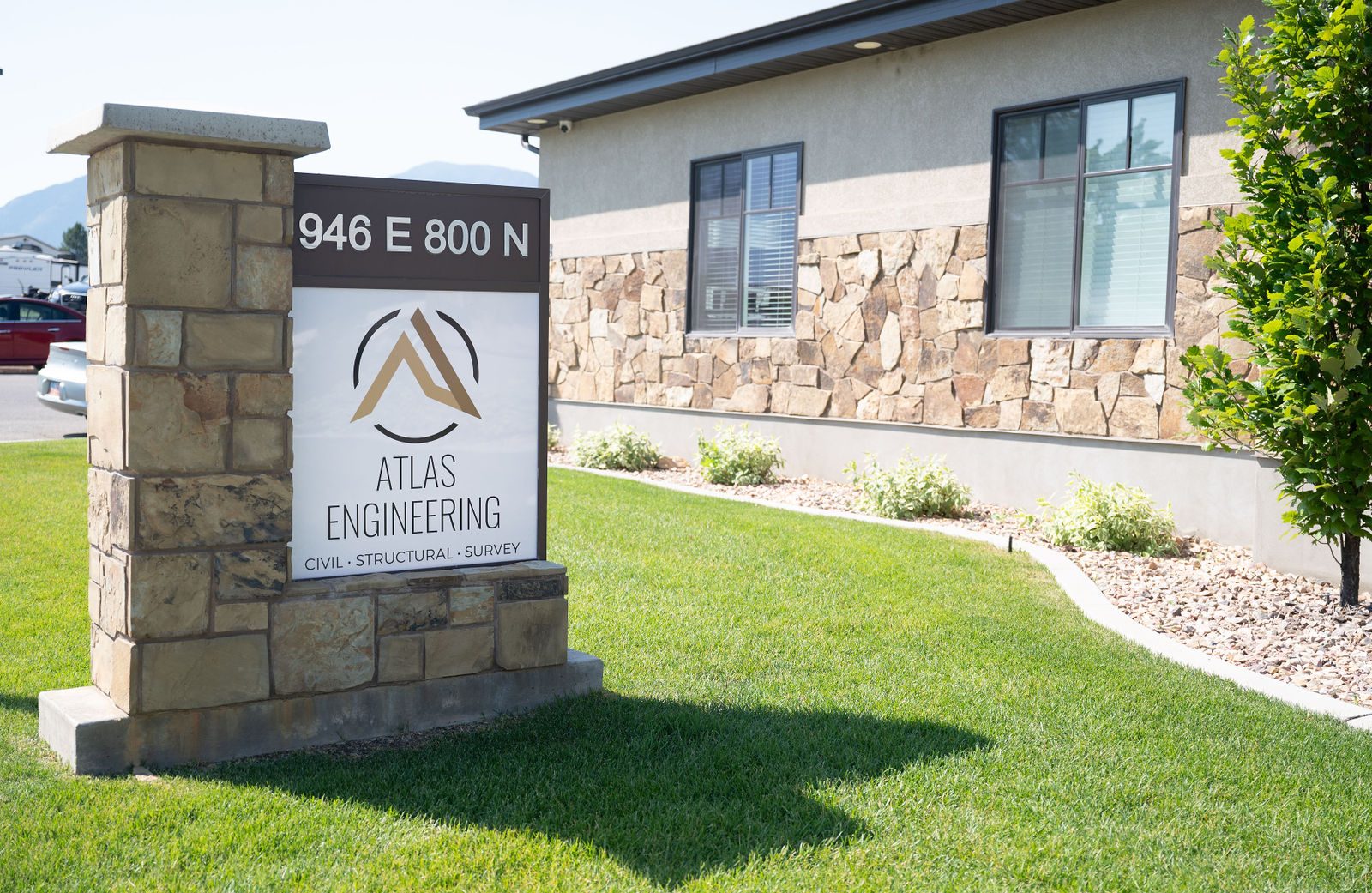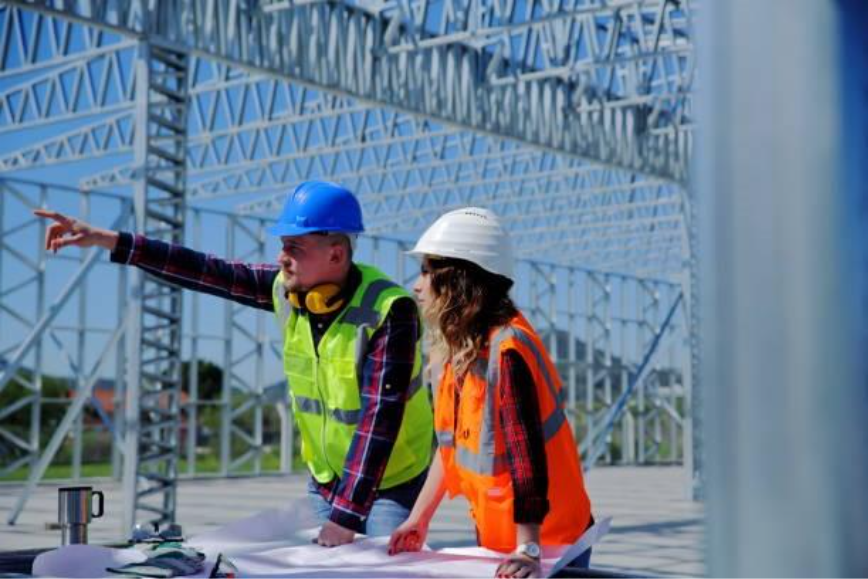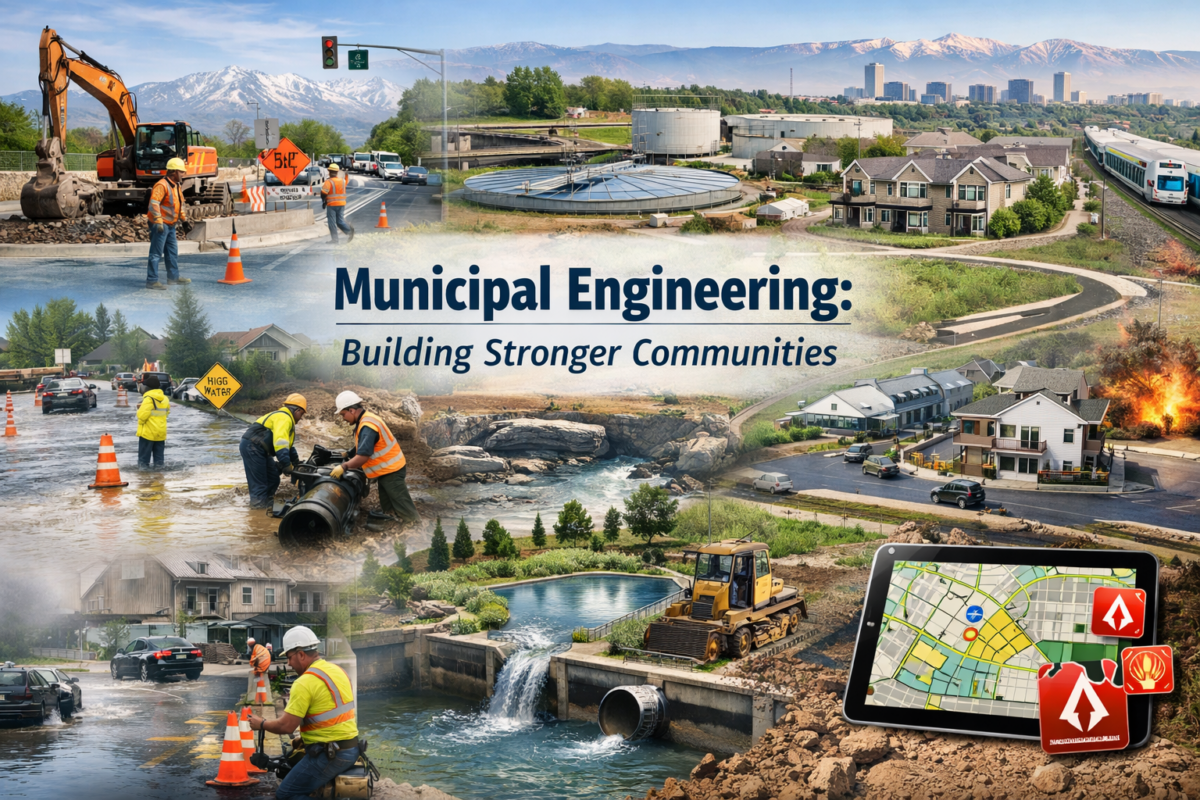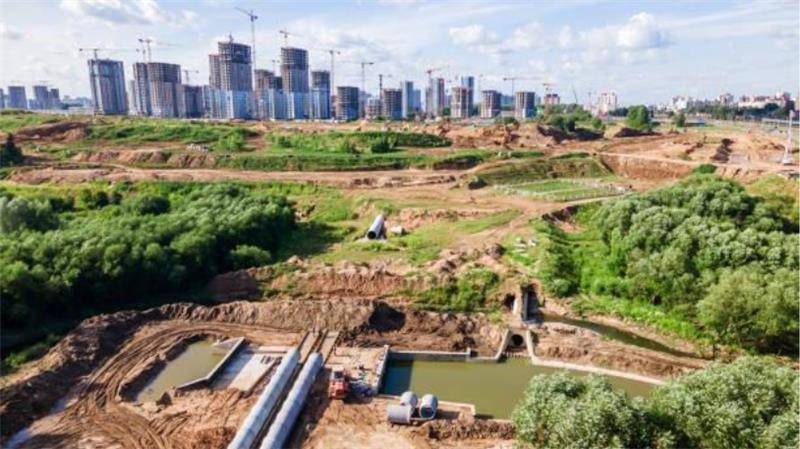Most days, we move through our towns without thinking twice about how everything works. We drive to the store, turn on the tap, walk the dog after it rains, and trust that the lights will come on at night. These small, everyday comforts feel normal—but they exist because someone planned them carefully. That “someone” is often behind Municipal Engineering Services.
You don’t need an engineering background to understand why this matters. In fact, municipal engineering is really about people and how they live, not about complicated drawings or technical terms.
Municipal Engineering Services: What They Really Mean

In the simplest sense, Municipal Engineering Services are about taking care of the shared systems that keep a town running. These are the things everyone depends on, whether they notice them or not:
- Streets and intersections that connect neighborhoods
- Sidewalks that make walking safer
- Water systems that deliver clean drinking water
- Sewer and drainage systems that carry water away safely
- Street lighting and public utilities
Municipal engineers help plan, build, and maintain these systems. Their job is to make sure they work well today and continue working years from now.
Why Everyday Residents Should Care

If you’re a first-time homebuyer, municipal engineering can quietly influence how good a neighborhood feels. Well-planned infrastructure often means fewer surprise repairs, less flooding, and smoother traffic. These details can also affect long-term property value.
For families, municipal engineering supports daily routines. Safe roads make school drop-offs easier. Sidewalks and crossings help kids walk or bike safely. Reliable water and sewer systems protect everyone’s health.
For retirees, comfort and safety are especially important. Even pavement, clear lighting, and dependable utilities make it easier to stay active, independent, and confident moving around the community.
These services may be invisible, but their impact is very real.
Understanding Municipal Urban Engineering

Municipal urban engineering looks at how an entire town or city works together. Instead of solving one problem at a time, it focuses on the bigger picture.
This includes questions like:
- How will traffic change as the population grows?
- Can the drainage system handle heavier rainfall?
- Are utilities prepared for future development?
Good municipal urban engineering helps communities grow in an organized, thoughtful way. Without it, towns often end up reacting to problems instead of preventing them—leading to congestion, flooding, and frequent repairs.
When planning is done well, growth feels steady and manageable rather than rushed or chaotic.
What Municipal Engineering Consulting Does

Not every town has a large engineering department. That’s where municipal engineering consulting becomes valuable.
Consulting engineers work alongside local governments to guide projects from start to finish. They help review plans, check safety standards, and suggest practical solutions that fit both the budget and the community’s needs.
They also help with permits, regulations, and long-term planning. This support helps prevent mistakes that can turn into expensive problems later on.
For residents, this often means fewer construction delays, smoother projects, and infrastructure that lasts longer.
Safety Is a Big Part of the Job
One of the most important goals of municipal engineering is safety. Before any road, pipe, or drainage system is built, engineers study how people move, how water flows, and how land behaves over time.
This careful planning helps:
- Reduce traffic accidents
- Prevent water buildup after storms
- Protect clean water sources
- Improve visibility and security at night
When everything works properly, most people never think about it—and that’s exactly the point.
Looking Ahead Makes Communities Stronger
Municipal engineering isn’t only about fixing what’s broken. It’s about planning for what’s coming next.
Cities grow. Neighborhoods change. Weather patterns shift. Municipal Engineering Services help communities prepare instead of constantly reacting.
This forward thinking saves money, reduces disruptions, and helps towns remain comfortable places to live—no matter your age or stage of life.
Why Quality Municipal Engineering Matters
When municipal engineering is done right, life feels easier. Roads drain properly. Utilities work without interruption. Neighborhoods feel safe and organized.
When it’s done poorly, the effects show up quickly—potholes, flooding, traffic issues, and rising maintenance costs that affect everyone.
Thoughtful planning and experienced guidance make a lasting difference.
Final Thoughts
Municipal Engineering Services may stay out of sight, but they shape daily life in powerful ways. From the streets you drive on to the water you use every day, these services help towns and cities function smoothly and safely.
For communities planning improvements or long-term infrastructure projects, Atlas Engineering offers dependable municipal engineering support focused on practical solutions that serve people today and well into the future.
Leading Engineering Services in Utah & Idaho
Frequently Asked Questions
1. What are Municipal Engineering Services, in plain language?
They’re the work that keeps a town from having constant problems. Things like roads holding up, water coming out clean, and rainwater going where it’s supposed to. Municipal Engineering Services handle the basics so people can go about their lives without worrying about infrastructure.
2. I’m not involved with the city—why does this matter to me?
Because it affects you even if you never think about it. When streets don’t flood, traffic isn’t a mess, and utilities work without issues, that’s municipal engineering doing its job. When it’s done right, you barely notice it—and that’s actually a good thing.
3. What does “municipal urban engineering” mean without the fancy words?
Municipal urban engineering is about planning ahead. It looks at how a town is growing and asks whether roads, water systems, and neighborhoods will still work as more people move in. It helps avoid rushed fixes and bigger problems later.
4. Why would a town need municipal engineering consulting?
Sometimes towns need experienced guidance before starting big projects. Municipal engineering consulting helps them think things through, catch issues early, and make smarter decisions. It’s easier to plan correctly than to fix mistakes after construction starts.
5. Why is long-term planning such a big deal here?
Because repairing problems after they happen usually costs more and causes more disruption. Municipal Engineering Services focus on planning ahead so towns don’t have to constantly deal with broken roads, water issues, or emergency repairs as they grow.

